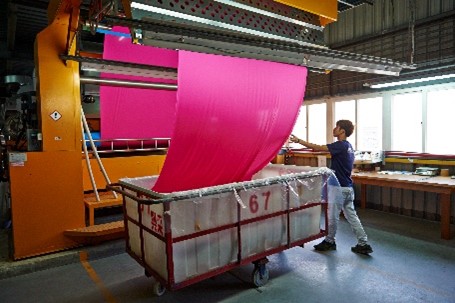
Sedex Members Ethical Trade Audit (SMETA)
Improving ethical practices throughout the supply chain
World’s most widely used social audit
Developed by Sedex, a global membership organisation, SMETA audits are designed to help protect workers from unsafe conditions, being overworked, discrimination, low pay and forced labour. As the world’s most widely used social audit, SMETA identifies and prioritises the risks using a two or four-pillar audit depending on your needs.
SMETA 2-pillar audit:
1. Labour standards
2. Health and Safety
A 2-pillar audit also looks at management systems, entitlement to work, subcontracting and homeworking and a shortened environmental assessment as additional elements.
SMETA 4-pillar audit:
This is a full SMETA audit and includes the same modules as a 2-pillar audit with the addition of:
3. Environmental assessment (extended)
4. Business Ethics
Completing a SMETA audit not only supports transparency across your supply chain but can drive improved performance of all stakeholders through a comprehensive Corrective Action Plan.
Conducting over 25,000 social and environmental audits per year, LRQA has been a member of the Sedex Associate Auditor Group for more than twelve years. LRQA has been awarded the Sedex Responsible Business award – the only audit firm to receive the honour, the only company to have received the award twice.
Benefits of a SMETA audit
A SMETA audit will give your stakeholders confidence that they are working with a sustainable supplier.
Benefits to your business include:
- Greater visibility of the social and environmental performance of both your business and your supply chain,
- The corrective action plan will enable you to prioritise action in the highest risk areas,
- Reduced audit fatigue by having one widely accepted format.
Our Sedex SMETA and Responsible Sourcing Assessment services
Corrective Action Plan Management
Our experts work with you to review improvements made through corrective actions, helping you to ensure continuous improvement and enhanced performance across your supply chain.
![]()
Management Systems Assessment (MSA)
Assess the maturity of your systems, ensuring they are robust enough to prevent non-compliance.
Training
Expand your knowledge within responsible sourcing with our range of courses via our EiQ Digital Learning library.
Why work with us
On-the-ground expertise
We’re everywhere you are. With highly qualified auditors worldwide, we can provide a local service, including SMETA, with a globally consistent dedication to excellence.

Flexible delivery
In many cases, our responsible sourcing services can be delivered on-site or remotely using safe and secure technology. By blending face-to-face and digital methodologies we create a service delivery model to best support your needs.

History of firsts
We were first to receive accreditation to deliver certification services for a range of quality, environmental, and health and safety standards across the globe. And we continue to be instrumental in developing a variety of specific standards including SMETA, across different sectors.

Sustainable focus
With over 20,000+ audits carried out every year, including SMETA, we are one of the world’s largest ESG specialists. We have developed the world’s first end-to-end supply chain ESG due diligence platform, incorporating unique proprietary data that is verified from the ground up.

Frequently Asked Questions
What is SMETA 7.0 and how does it differ from previous versions?
SMETA 7.0 is the latest version of the audit methodology released in late 2024. It introduces new features like the Management Systems Assessment (MSA), which evaluates a site’s ability to prevent risks, and the Collaborative Action Required (CAR) category, which encourages multi-stakeholder collaboration to resolve complex issues. These updates aim to improve transparency, collaboration, and compliance across global supply chains. Find out more in our latest article: Sedex SMETA 7.0: everything you need to know about the latest audit update or contact us.
What are the main differences between the 2-pillar and 4-pillar SMETA audits?
The 2-pillar audit focuses on Labour Standards and Health and Safety, providing a thorough review of these critical areas. The 4-pillar audit adds Environmental and Business Ethics assessments for a more comprehensive evaluation of a company’s sustainability and ethical practices. The choice depends on your business's specific needs and compliance goals.
How does the Management Systems Assessment (MSA) help my business?
The MSA assesses the effectiveness and maturity of your site’s management systems in preventing non-compliance risks. By focusing on the systems in place to manage issues like labour conditions and health and safety, the MSA provides proactive insights that can help you identify and mitigate risks before they escalate.
What is the Corrective Action Plan (CAP)?
The Corrective Action Plan (CAP) helps businesses address non-conformities found during a SMETA audit and implement effective corrective actions, ensuring compliance improvements are sustained and tracked. Our experts review improvements made and close the findings.
Would you like to transfer your Responsible Sourcing Assessment services to LRQA?
If you hold a valid certificate with another provider and you are considering making the move, transferring your responsible sourcing services to LRQA is simple. We'll work with you to ensure your transfer is as smooth as possible.









